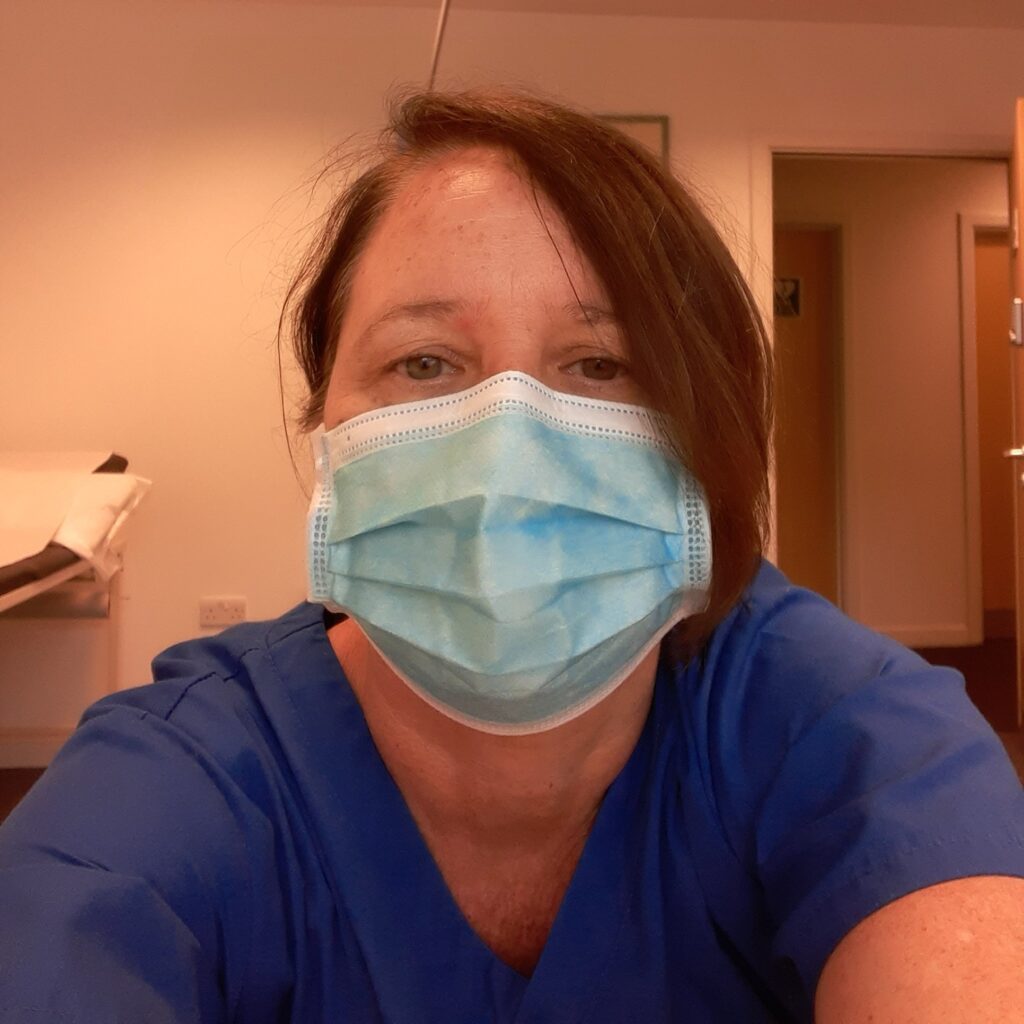Debate: Should flu vaccination be mandatory this year for all health and social care workers?

With the government aiming to reduce the pressure on the NHS this winter with an expanded flu vaccination programme, four contributors discuss whether the jab should be mandatory for health and social care workers.
YES: Flu vaccination should be mandatory
Jane Baldry, ANP in Suffolk: ‘It’s imperative to immunise all HCPs with the flu vaccine’

As an advanced nurse practitioner working in an acute clinic in general practice, in early March this year I was exposed to, and contracted, Covid-19, as did many of my clinical colleagues. The flu season will soon be upon us and I know many of the possible difficulties that could arise with the added danger of Covid-19.
There are similarities in the presentation of flu and Covid-19. That is, they both cause respiratory disease, which can present as a wide range of illness – everything from asymptomatic or mild through to severe disease and death. To keep an already overstretched NHS from falling to its knees this winter, we need to prevent a major flu outbreak this year.
Primary care facilities throughout the country are already putting in place plans to provide flu vaccines. This year, the flu vaccine is being offered on the NHS to all adults aged 50 and over, as well as to people with certain medical conditions (including children in at-risk groups from six months of age) and pregnant women.
Related Article: Improving lung health one song at a time
This will be a mammoth task given the current workloads and the potential risk infection of Covid-19, and will require the optimum number of healthcare professionals to deliver.
In my opinion, it is imperative that all healthcare professionals be immunised with the current flu vaccine, to prevent illness in the workforce and also because of the risk if they are exposed to Covid-19.
This could also result in more health worker deaths, which would be catastrophic. Protecting the general population will require the largest
percentage ever to consent to the flu vaccine. If the government were to make the flu jab mandatory among healthcare professionals, and widely publicise it, I believe this would instil confidence in the general population and encourage them to do the same.
This is even more important as the government has announced that PHE will be scrapped and replaced with a new body.
Naomi Somers, student nurse at Derby University: ‘The benefits far outweigh the potential risks’

Each year in England alone, the flu is responsible for thousands of hospital admissions and around 8,000 deaths. Those who are most likely to enter healthcare settings are pregnant women, infants, the immunocompromised and the over 65s – groups who are also the most likely to suffer severe illness and death from the flu.
Healthcare workers have an increased risk of contracting the flu and come into contact with vulnerable groups on a daily basis. The flu vaccine is the most safe and effective measure for healthcare workers to minimise the risk of contracting the flu and spreading the illness, not just to vulnerable patients within their care but also their friends, family and anyone else they come into contact with.
Each time I have been offered the flu vaccine I have accepted and will continue to do so. As a student nurse, patient safety is my number one priority and I will do everything within my power to protect the health of those who I am caring for. And with the surge of illness and hospital admissions and the subsequent overwhelming pressure on the NHS that the Covid-19 pandemic has brought on, this year’s flu season is more important than ever.
It is a common misconception that the flu vaccine can cause the flu. This is not possible as the injected vaccine contains only the inactivated flu viruses and any flu-like symptoms after receiving the immunisation are likely to have been incubating before receiving the shot, caused by another virus or a strain of the flu not covered by the vaccine. Furthermore, evidence shows that there is only a small likelihood of developing mild side effects from the vaccine and allergic reactions are very rare. Each year, the vaccine is produced to contain inactive strains of the flus predicted by the World Health Organisation aas most likely to be circulating that Winter to ensure maximum effectiveness.
Related Article: Health visitors to play integral role in improving childhood vaccinations uptake
Making the annual flu vaccine mandatory for healthcare workers would ease some of the burden on the NHS this winter, providing both staff and patients with the best protection we have against the flu and reducing the spread of the illness to those who are most vulnerable. Especially during the Covid-19 pandemic, the benefits far outweigh the potential risks and the motion would place patient safety above all else.
NO: Flu vaccination should not be mandatory
Jacqui Neil, national transforming workforce lead at Scottish Care – ‘Mandatory vaccination presents ethical questions’

NHS staff across the UK have, for a number of years, been offered a free annual vaccine to protect against the flu. Despite this, uptake has been variable. The availability to social care staff was patchy and often resulted in a cost to the employer or staff member.
As we approach the winter months in a year where loss of life in our most vulnerable groups has been staggering, it is essential to ensure every safeguard is in place. In health and social care, the safeguarding of our patients and residents has always been at the forefront of all staff endeavours, but perhaps we have neglected ourselves in the process. Staff may perceive themselves to be healthier than they actually are and therefore not at risk. ‘I go to the gym and take vitamins so I don’t need the flu vaccination,’ they may think.
In Scotland this year, we will see the expansion of the flu programme, which will be fully inclusive of all social care staff who provide direct care. There is no question that prevention is better than cure, especially when the risk of a second wave of Covid-19 is a real threat. However, mandatory vaccination of front-line staff – and there have been several pushes for this over the years – presents many moral, religious and ethical questions. Respecting staff choice is important as some staff are simply not able to take the vaccine. Although the risk of adverse reactions is low, they are possible, and consent should always be sought for that reason alone.
Perhaps, then, the standpoint should not be mandatory vaccinations but a mutual benefit response. This would ensure we open up access to the vaccine, and encourage and educate staff to fully understand how this can reduce loss of life at a time when residents, staff and families are still recovering from the pandemic. I am confident with this year’s expanded flu vaccination in Scotland that social care staff will embrace the opportunity to receive a free vaccine, and that uptake will be high across the NHS and independent sector.
Related Article: Supporting student nurses on placement in general practice
Sara Petronijevich, practice nurse at Maywood Surgery in West Sussex – ‘Consent should come first’

Mandating any procedure would bypass an important basis: consent. Healthcare workers are bound professional to gain (informed) consent to carry out any procedure, invasive or otherwise, and is the basis for the relationship between a practitioner and the patient, as one of mutual understanding and trust.
The word mandatory means forced. It would mean that the trust between the healthcare worker and their employer – in which the healthcare worker feels valued, considered and a competent professional, able to make their own best decisions – would alter. In addition, in England, the uptake by 74.3% of healthcare staff in 2019/20 is, I would assert, a stand-alone argument against a need to mandate.
In this current pandemic, the question of mask wearing in supermarkets could be considered a test run for announcing compulsory health measures. There are movements and declarations of personal rights and social media can elicit incredible responses to being asked to wear a mask. As with all yes/no questions, the polarisation of opinion can have a wider detrimental effect between people in environments with split opinions becoming chasms.
We should continue to practice in ways we do best, which is to provide health education, promote health prevention and that includes amongst us, in our teams. We can continue to practice good infection control including good handwashing (of which only 40% of HCW’s are handwashing correctly/at all points of care), wearing a mask, and respect each person’s decisions. There is also an issue of confidentiality – so that currently anyone who opts out of the flu vaccine offered ought not to become a reason to treat team members differently. If we move to mandating the vaccine (and the debate would recur yearly), then we begin to create an environment that has a completely different basis for those working for the best of others.

See how our symptom tool can help you make better sense of patient presentations
Click here to search a symptom




